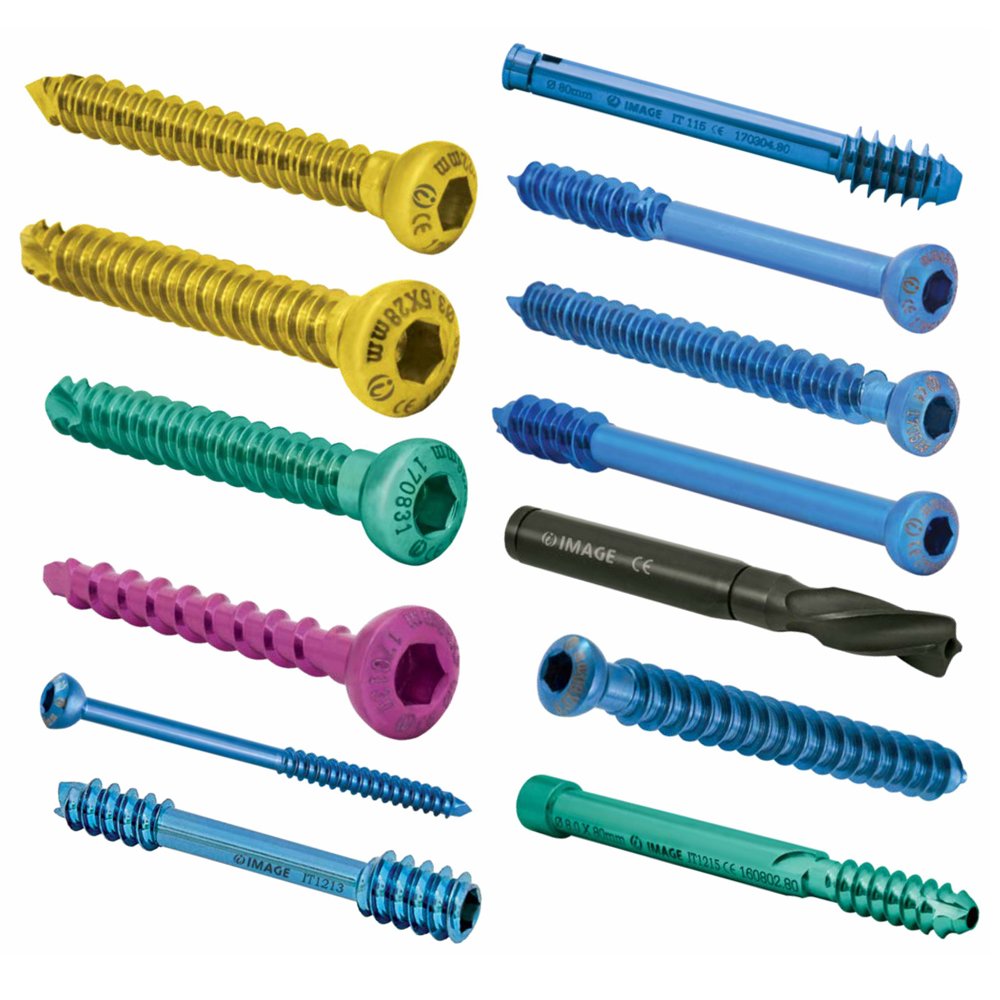Material Composition:
Titanium: Orthopedic bone screws are often made of titanium, a biocompatible metal known for its excellent strength-to-weight ratio, corrosion resistance, and compatibility with the human body. Titanium screws are favored in orthopedic applications due to their ability to minimize the risk of adverse reactions or metal allergies.
Types of Orthopedic Bone Screws:
Cortical Screws: Designed for fixation in the dense outer layer (cortex) of bone.
Cancellous Screws: Suited for fixation in the spongy or trabecular bone.
Locking Screws: Feature a mechanism that locks the screw head to the plate, providing added stability in certain applications.
Cannulated Screws: Hollow design allows for the insertion of a guide wire, aiding precise placement.
Thread Design:
Self-Tapping: Some orthopedic screws are self-tapping, meaning they can cut their own threads during insertion, reducing the need for pre-drilling.
Variable Pitch: Screws may have a variable pitch along their length to optimize engagement with bone.
Head Types:
Flat Head: Commonly used for cortical screws.
Round Head: Often used for cancellous screws.
Hexagonal or Torx Heads: Provide better torque control during insertion.
Length and Diameter:
Orthopedic bone screws are available in various lengths and diameters to accommodate different anatomical structures and clinical scenarios.
Coating and Surface Treatments:
Some titanium screws may undergo surface treatments or coatings (e.g., hydroxyapatite coating) to enhance biocompatibility and promote bone integration.
Sterilization:
Orthopedic bone screws are sterilized before use to maintain aseptic conditions in the surgical environment.
Indications:
Bone screws are used in a variety of orthopedic procedures, including fracture fixation, joint fusions, osteotomies, and spinal surgeries.
Advantages of Titanium:
Biocompatibility: Titanium is well-tolerated by the human body, minimizing the risk of adverse reactions.
Corrosion Resistance: Titanium resists corrosion in biological environments, contributing to long-term stability.
Strength: Titanium’s high strength allows for the creation of strong and durable screws.
Radiopacity:
Titanium bone screws are often radiopaque, facilitating their visualization on medical imaging such as X-rays.






Reviews
There are no reviews yet.